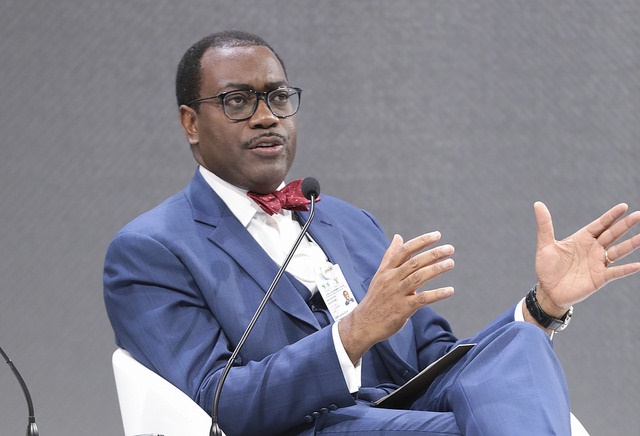AfDB President Defends Dangote Refinery Amidst Monopoly Controversy, Highlights Economic Benefits for Nigeria

The President of the African Development Bank Group, Akinwumi Adesina, has addressed concerns over potential monopolistic practices against Dangote Refinery, emphasising the importance of the refinery to Nigeria’s economy.
In a statement, Adesina highlighted the global negative impact of the controversy surrounding Dangote’s operations.
Adesina expressed his shock at the criticism directed towards Dangote, stating that it creates a damaging image for Nigeria internationally.
He explained that monopolies often emerge in sectors with high entry barriers or substantial capital requirements, using railways and large-scale refineries as examples.
“Monopoly often exists where there are high barriers to entry or high capital costs. How many individuals or companies can do railways? How many can do refineries of the scale of Dangote Refineries? In a nation that has been importing refined petroleum products for several decades, the abnormal simply became very normal,” Adesina said.
He further defended Dangote’s significant $19.5 billion investment in the refinery, pointing out that no investor would want such a substantial investment to be undermined by importers.
Adesina also outlined the challenges of manufacturing in Nigeria, describing the environment as riddled with policy uncertainties and reversals.
“To manufacture is extremely expensive and risky. This is even more so in Nigeria, given the very challenging business and economic environment, fraught with policy uncertainties and policy reversals, and where the self-defeating default mode of ‘simply import it’ is always so easily rationalised and chorused to solve any problem,” he remarked.
Addressing concerns about anti-competitive practices, Adesina questioned the validity of these claims, noting that Dangote Refineries had not prevented any other companies from establishing their own refineries.
He challenged importers to set up local refineries and compete fairly by refining within Nigeria.
“Competition is good for everyone. But is Dangote refineries anti-competitive? What is the evidence? Has Dangote Refineries prevented any other company from setting up refineries? Why have others not done so? How come they have not done so for several decades? Was it Dangote that held them back? But Dangote refineries surely cannot be asked to ‘compete’ with importers of petroleum products. That is not competition. Let the importers set up local refineries and compete by refining in Nigeria. That is fair and justified competition,” he queried.
Adesina emphasised the broader economic benefits of the Dangote Refinery, including domestic supply security, job creation, reducing foreign exchange expenses, and supporting the Naira. He warned against undermining such a significant local industry, highlighting its crucial role in Nigeria’s industrialization and economic stability.
“We cannot and must not undermine, disparage, or kill local industries, talk less of one that is of this scale – a jewel of industrialization in Nigeria. It is more than simply delivering the cheapest product to the market.
“It is about domestic supply security, driving (and yes, protecting) globally competitive industries, maximizing forward and backward linkages in the local economy, job creation, reducing forex expenses, and shoring up the Naira. We must not be myopic,” Adesina stressed.
He concluded by criticising the disparagement of Dangote, labeling it as self-defeating and detrimental to Nigeria’s investment climate.
“This whole disparaging of Dangote is uncalled for. It is self-defeating. And it is very bad for Nigeria. Who will want to come and invest in a country that disparages and undermines its own largest investor?
“Investing is tough. Pettiness is easy. It sadly sends a signal that the price for sacrificing for Nigeria is to get sacrificed,” Adesina concluded.







